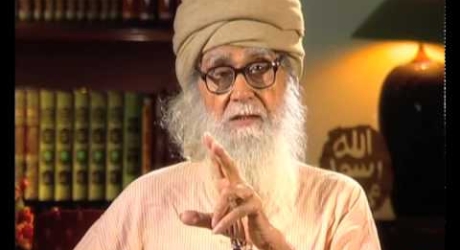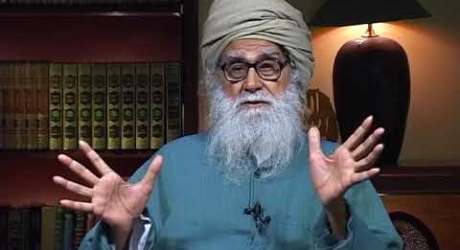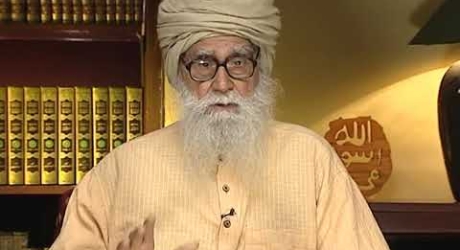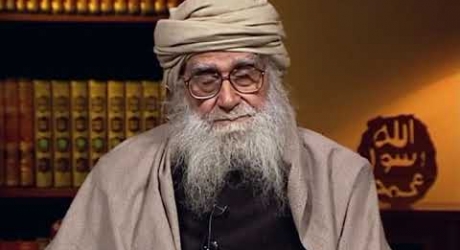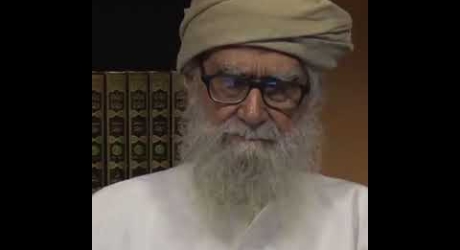Everyone is born with a perfect nature. Nature is the best guide for every man and woman. One’s nature gives the right direction on all occasions. This natural signal, when followed sedulously, is a guarantee of human success. For example, overeating is a common problem. It leads to obesity and all kinds of diseases. However, it is effortless to avoid overeating. A few minutes before reaching the stage of overeating, the stomach gives out a light signal. If you listen to that signal and stop eating there, you can prevent yourself from overeating. It is the easiest way to save yourself from unnatural diseases. When you make an incorrect statement or talk about a matter that is not right, your conscience gives you a signal from within. Moreover, if you hear that signal, you can avoid wrong thinking and speech. Moreover, there is no doubt that wrong thinking and speaking are the root causes of failure. Everyone is free to act according to his plan, with the only condition that one’s activities will not result in a new problem. Problem-free activities are suitable, but problem-ful…… activities are equally bad.
Introduction
Thinking on this theme, I could not understand what to speak. Immersed in my thoughts, I fell asleep and saw a dream. In the dream I was in conversation with a person who was telling me that while I always talk about avoidance (airaaz), I do not specify for how long avoidance should be exercised. I told him that avoidance has to be exercised always, at all times. I illustrated my point with the following example: while driving on the road, we follow the principle of “Keep towards your Left” or else it may lead to collision. The irony is that despite following this principle on the road daily, man fails to apply it in life. This is because on the road, man is dealing with a car, not a human being. Being non-Ego, the car does not create a situation where Egos may clash. Whereas interacting with another person is a situation where both who interact possess an Ego. Hence, it becomes crucial to downplay one’s own Ego and avoid confrontation. On the contrary, when man does not want to exercise avoidance, he actually gives importance to his own Ego. I told him that this was similar to being unaware of one’s awareness (apne jaan ne se bekhabar hona). I got up with these words resonating in my mind.
The meaning of this statement became clear to me this morning while I was sitting in my balcony and staring at the sun, which shone brightly even on a cold winter morning. I was overwhelmed as it seemed that the entire system of nature was created so that I may benefit from it – be it in the form of the brilliant sunlight, life-giving oxygen or the fresh whiff of air. I realised that even a king could not have got anything more than this. Irrespective of whether man lives in a palace or a hut, God has made available to him resources that help him survive. However, despite being created such, man chooses to remain unaware of his being. If man understands the attributes of his being and the infrastructure that has been erected for his sustenance, he will be filled with a sense of awe and gratitude towards his Creator. Man could not have created the solar system, blown the wind or created a mechanism for the production of oxygen on his own and yet it is incredible how these blessings have been bestowed upon him. In fact as citizens, we are actually better placed than kings and queens themselves because for security reasons, they remain confined in closed room and cannot freely relish the beauty of nature. But instead of being thankful, we resort to complaints. Being unaware of our awareness is therefore, the case of everyone. Man fails to recognise his unique attributes that are not possessed by any mountain, galaxy etc. Similarly, people die everyday but no one thinks about their own death. In other words, living amidst the news of death, man remains unaware of his own death.
Principle of Avoidance
The Principle of Avoidance is a universal principle. There exist countless stars and planets in this universe all of which are in motion at high speeds. These do not collide because they follow the Principle of Avoidance. I once read that a galaxy, comprising innumerable moving stars enters the orbit of another galaxy, similar in nature and passes through without collision. This is a perfect illustration of this Principle. Avoidance in other words, is to continue your activity without confronting. This law is followed even in the animal world. Very often we see two animals coming towards each other but then steering clear of one another’s path so as to avoid confrontation.
This Principle has great importance in Islam. Prophet Muhammad practised it in every situation. Avoidance is actually the technique of “buying time” because non-confronting allows time to think in the direction of availing the opportunities. When the Prophet was in Mecca, Kaaba was filled with idols but he did not attempt to remove them; instead he continued to avail the opportunities for spreading the message of God. When his tribe became too hostile, Prophet Muhammad migrated to Medina. Even in Medina, the opposition continued to launch offensives against the Prophet. On one such occasion, the Prophet got a trench dug between the two parties on the advice of a companion, Salman Farsi. The digging of this trench, which acted as a buffer helped avert the violent confrontation that could otherwise have brought ruin and bloodshed.
Practising avoidance is a wise way of managing familial, societal, national, and international affairs. Unawareness of this Principle is in effect unawareness of the Creation Plan of God. This is because man does not live in the world all by himself. He exists in a society which thrives on competition. God has given freedom to everyone to achieve his or her goals. Man must therefore recognise his own limitations and the fact that he cannot create a new world for himself. Not following avoidance leaves just one alternative for man – that is, hypocrisy. In other words, if today one is fighting in the name of justice how long will this fight continue? When things take a turn for worse, status quo will eventually be accepted. This will be hypocrisy. It is therefore better to avoid confrontation and remain patient; in other words, to practise it as a principle so that there is no room for becoming a hypocrite later.
Israel issue
Throughout Arab world, the opinion regarding Israel is to restore it to its 1948 borders. Today, the Arabs occupy very small portion of Israel, namely, Gaza strip and Areha – unlike in 1948 when under the Balfour division they were given more than two-thirds of the land. The entire Arab world refused to accept this division and today they are demanding the restoration of Israel as per the earlier division. If they can agree on it now, why did they not accept it then? Their denial was completely against the Principle of Avoidance. They failed to understand that Islam teaches realism and acceptance of status quo. Had the Arabs agreed to the 1948 status, there would have been no bloodshed and loss. A couplet in Persian says
What the wise do, is done by the fools but only after they face destruction
[Jo samajhdaar karta hai, who besamajh bhi karta hai par tabahi ke baad]
Kashmir issue
The issue of Kashmir is also an example of refusal to accept the status quo. The Kashmiris did not accept the special provisions that were being granted to their state by the Indian constitution. Today, after facing enough destruction, they are demanding that very status, which they had earlier refused.
It is critical to understand that policy is that which has practical wisdom. On every occasion, one course of action is possible and another is impossible. Life therefore is the art of the possible. This is what is meant by patience and realism. Not following the possible leads only to destruction, after which one agrees to accept that which was being offered earlier.
Wisdom lies in avoidance
According to a verse in the Quran
The sun cannot overtake the moon, nor can the night outpace the day: each floats in [its own] orbit (36:40)
This verse illustrates the Principle of Avoidance in nature. Man must follow this rule to be successful in life. Most often people see the need for patience but fail to perceive the opportunities that shall follow. That is, they fail to understand that adopting the policy of avoidance paves way for availing opportunities. But if one doesn’t follow avoidance then the first casualty is opportunity.
In other words, not exercising the principle of avoidance has its price. Therefore, whatever the scenario, the status quo must be accepted.
Positive status quoism
Positive status-quoism, means accepting the situation as it is and recognising the opportunities which exist along side. This has been explained in the Quran in the following verse:
So, surely with every hardship there is ease (94:5)
The ideology propagated by the Prophet was Tawheed and his approach to life was based on positive status-quoism. In understanding the importance of being a positive status quoist, man in effect, recognises that the society he lives in constitutes others who shall actively pursue their goals. It is not a matter of conspiracy or enmity. God has granted freedom to all and every one shall exercise this freedom. Let me illustrate this through an example. If you are driving a car on the road, will others stop driving theirs? People who think in such a manner will never flourish. It is unwise to make justice the criterion of taking action; on the contrary, pragmatism must become the deciding factor. When the Prophet migrated from his hometown, was it justice? No. It was a practically possible solution. It is therefore, essential to remember that man can be an idealist only in his own case but not in social matters. When the Prophet wanted to go for Umrah [visit to Kaabah at a time other than Hajj] and was refrained from doing so, this was not a just treatment but he did not protest.
Therefore, it is not justice but practicality of the course of action which is the crucial of the two. Unfortunately the fallacious idea of justice being the criterion has gripped the entire world. This happens when man fails to realise that because God has granted freedom to everyone, each will strive for his share and therefore not justice but pragmatism will be required to ensure harmonious existence. Once he agrees to adopt this principle, man will be able to avail the opportunities that come by. Examples galore of how people had to forego their status only because they did not accept the reality of the principle of avoidance. For instance, prior to independence, the splendour of the Nawab of Hyderabad was such that streets used to be sanitised before his entourage could pass through. But his grandeur came to an end because he could not practise avoidance.
Not adhering to the principle of avoidance leads to annihilation. It is therefore practical wisdom to follow the learning from the following Persian couplet,
Man must not act in a manner that invites embarrassment
[Aadmi woh kaam kyun kare, jiske aakhir mein sharminidagi aane wali ho]
Towards the end
Man must know what is achievable and what is not. Knowing this distinction in advance is the key to success. I am reminded here of the story of a beggar who came to a person asking for money. As this man pilled out some money and gestured towards the beggar, the latter insisted that he wants more. Angry at this, the man scolded the beggar and asked him to leave. At this, the beggar asked him to at least give what he was giving earlier. He said, ‘Jo aap pehle de rahe the, woh hi de dijiye’. This is a pitiful situation and has become the case of the Muslims world over. They want to restore the benefits which were being given to them earlier, but they cannot do so now.
Man should never do something which may become counter productive. Thinking why should we follow avoidance and not the others is not the right approach. Avoidance saves man from facing disgrace and humiliation. Man must know the difference of what can be attained and what cannot be, all this while keeping in mind that it is a competitive world where all strive to pursue their goals.
According to a recent news report, an ambassador created uproar upon being checked at the Airport. This was very unwise because maturity is the art of living peacefully with things you cannot change. Unfortunately, the newspaper remains flooded with news of unnecessary protests and demonstration, primarily because people fail to recognise the wisdom of avoidance. Man must learn to practise avoidance to avoid getting humiliated. While driving in another country, a British started driving on his left instead of right. The traffic controller looked at his foreign passport and said, “Sir you are not in Britain, this is France.” There is a great lesson in this instance for man. What if an angel appears before man and tells him that he lives in the world of God, not his own; here he cannot follow his desires. Man will be rendered speechless. Principle of avoidance concerns every aspect of life. We follow it all the time – even while using warm water for taking a bath in winters and avoiding to eat after our body signals that we should not!
Avoidance has great importance in Dawah work. The Quran narrates the instance of the Prophet Abraham who brought the message of tawheed (the oneness of God) to King Nimrod of Babylonia. But the King refused to accept his message. A part of their conversation is quoted in the Quran as follows:
Have you not heard of him who argued with Abraham about his Lord, because God had bestowed the Kingdom upon him? Abraham Said, “My Lord is the one who gives life and brings death.” He answered, “I (too) give life and bring death!” Abraham Said, “God brings up the Sun from the east, so bring it up yourself from the west.” Then the disbeliever was confounded. God does not guide the wrongdoers. (2:258)
This conversation between the Prophet and the King is a clear example of the principle of avoidance. That is, if the response of the other party is not positive, do not follow the futile course of confrontation. When the Prophet said that God was the Lord who gave life and brought death, the King said he could do likewise. This answer was wrong, but the Prophet avoided insistence and, with a change of stance, he raised a different point. His second point was so compelling that the King became speechless. Unfortunately, the present-day Muslims have grown so restless that be it a cartoon, book etc about the Quran and the Prophet, they become violent. They do not understand that irrespective of whether the humiliation is real or unreal, confrontation must be avoided.
In keeping the madu (addressee) annoyed, the present-day Muslims do not let normalcy prevail in the relations between the dayee and the madu. It is incumbent upon the dayee to unilaterally practise avoidance to ensure harmonious relations. If he does not avoid confronting the madu, he will not be able to do dawah work.
According to the Quran
Arise and give warning…and for the sake of your Lord, be patient (74:2-7)
This verse seeks ‘patience’ so that normal relations are maintained and dawah work continues. Dawah work seeks peace because it cannot take place in an atmosphere of confrontation. And it is the unilateral responsibility of the dayee to create an environment conducive to dawah work. This wisdom must be the underlying principle of all our actions in life.





